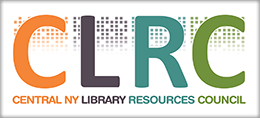International Association for Social Science Information Service and Technology (IASSIST) Annual Conference, Philadelphia, PA
Diversity in Research: Social Justice from Data
May 30, 2023 – June 2, 2023
With the generous help from CLRC, I attended the 48th annual conference of the International Association for Social Science Information, Service and Technology – IASSIST for short – in Philadelphia, PA. This was my first in-person conference since before the pandemic so it allowed me the opportunity to catch up with colleagues, some of whom I’ve known for over twenty years. I served as the Sessions Coordinator for the conference, recruiting and organizing Session Chairs and Tech Leads who monitor the Zoom broadcast and relay questions from virtual attendees. I also chaired one session and was a Tech Lead for two others.
IASSIST is an international organization, founded in 1974, of approximately 400 professionals working with information technology and data services to support research and teaching. We leverage our unique expertise in the social sciences to help benefit all data professionals and support open science. Members work in information technology, libraries, data services, research & higher education, government, non-profit and private research sector to discover data, curate it, make it available, and keep it available. “IASSISTers” work together to advocate for responsible data management and use, to build a broader community surrounding research data, and encourage the development of data professionals.
The conference started off with a “fireside chat” moderated by current president, San Cannon. The panelists discussed diversity in data topics such as accessibility, Indigenous engagement, and inclusion of minority populations in surveys. The panelists were Kathleen Weldon, Director of Data Operations and Communications at the Roper Center for Public Opinion Research at Cornell University; Dr. Jackie Carter, Professor of Statistical Literacy at The University of Manchester, UK, and the Academic Lead for EDI Disability; and Dr. Kirsten Thorpe, a Chancellor’s Postdoctoral Indigenous Research Fellow at Jumbunna Institute for Indigenous Education & Research at the University of Technology Sydney, Australia.
Although I was very busy making sure all of the sessions had chairs and tech leads (as always, there are some last-minute changes), I did have the opportunity to simply attend some as well. Among those were sessions on Data Management (“Servicing the Service: Harnessing your institution’s business data”; “Using Common Data Elements to Foster Interoperability of Research on Health Disparities;” “The ghost in the machine: How IT Service Management (ITSM) underpins a Social Science Data Service”), Data access, governance and ethics (“What do future data services look like?”).
As always, the IASSIST conference was a great success! We are all looking forward to next year’s conference in Halifax!
Paul H. Bern, Ph.D., Research Data Services Librarian, Syracuse University
